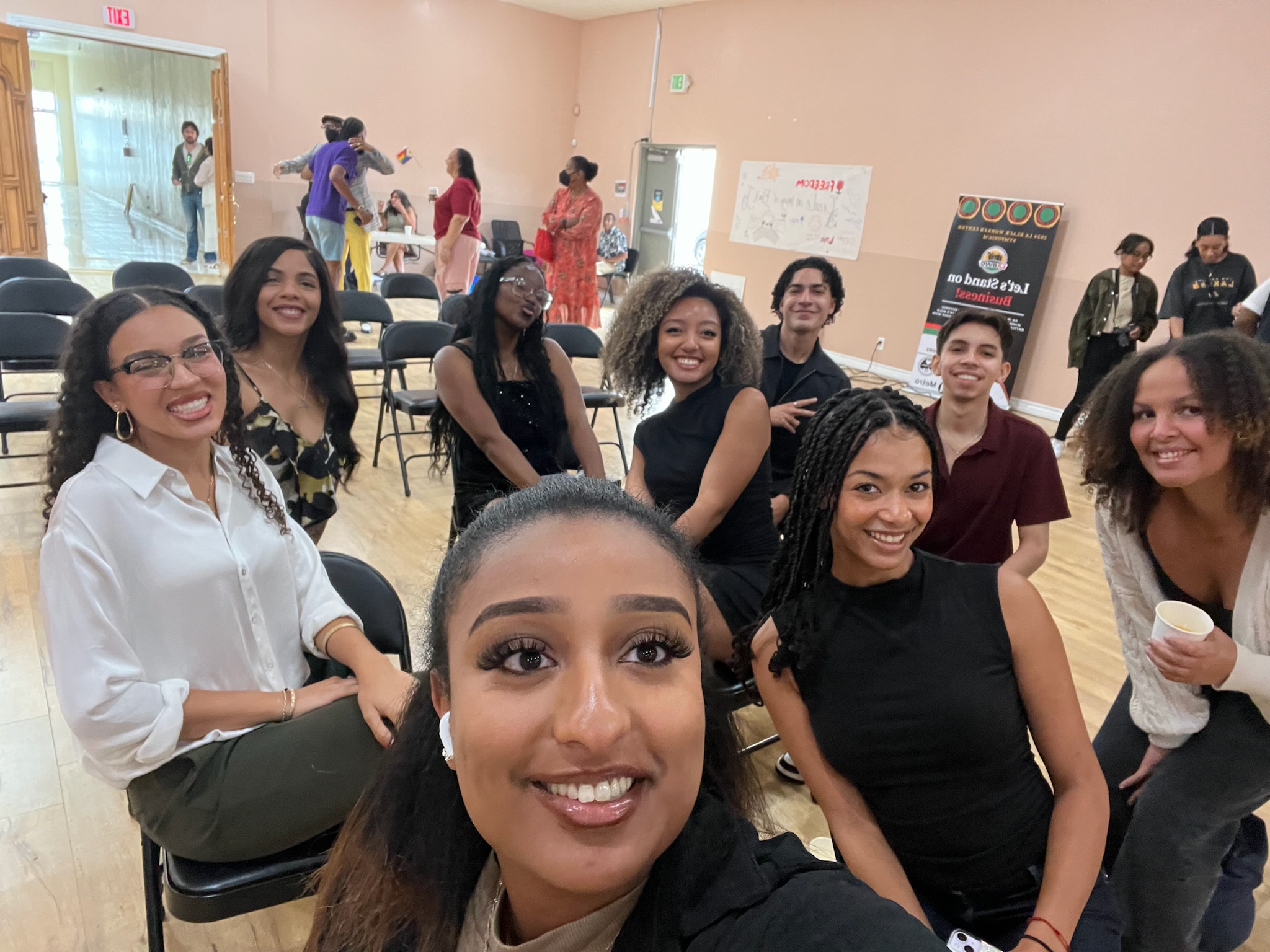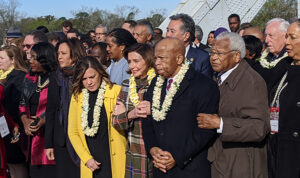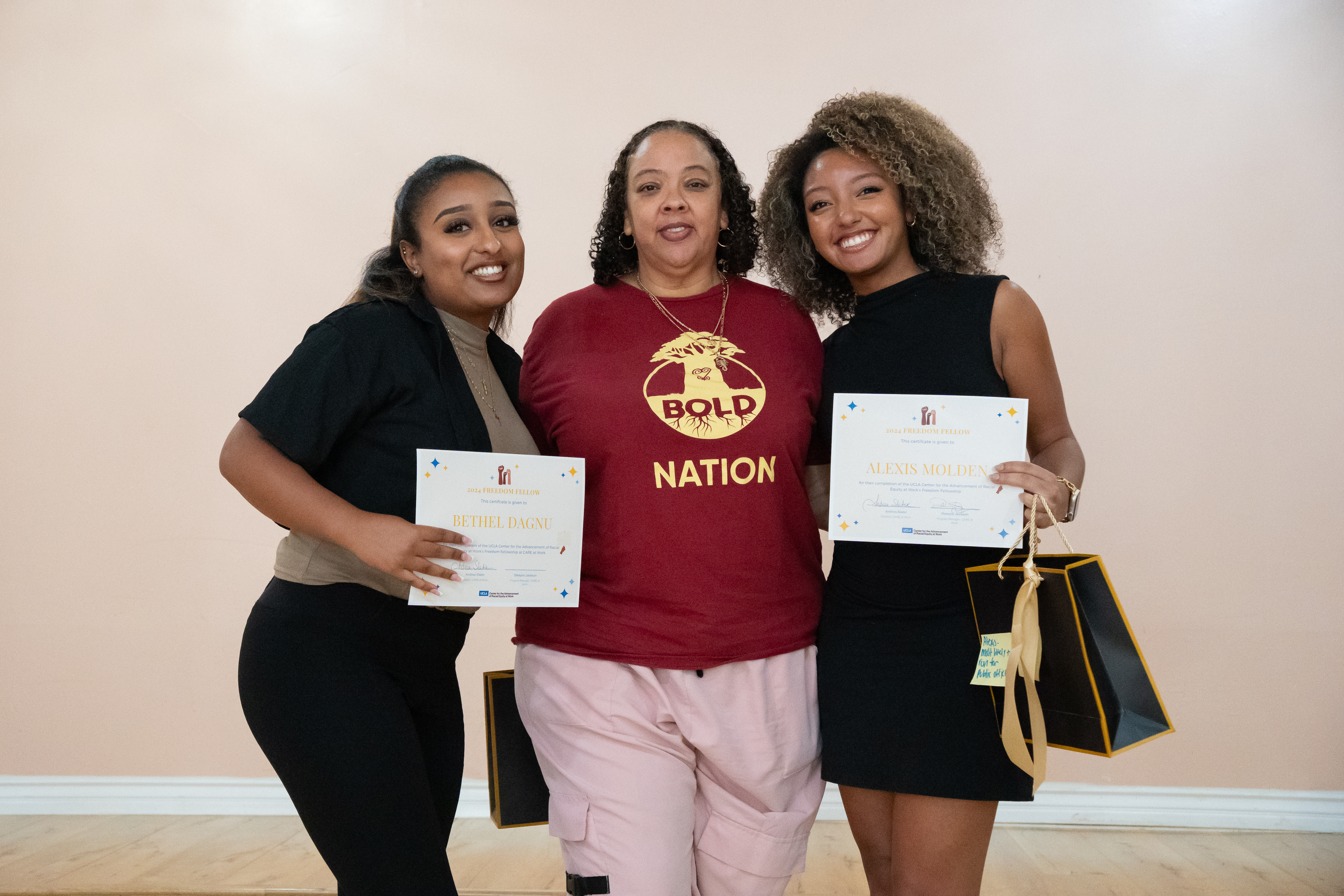
By: Simone Frank
From Oakland, California, meet one of the CARE at Work Freedom Fellows: Bethel Dagnu (she/her). Bethel is driven by a deep commitment to uplifting Black communities through labor organizing and building community resources. As a 2024 Freedom Fellow, Bethel sharpened her organizing skills and learned how to build worker power to secure labor protections for underserved communities. After the fellowship, Bethel hopes to bring transformative change to her hometown and create long lasting networks of support within her community.
Launched in summer 2021, the Freedom Fellowship offers an experiential learning opportunity that bridges students, labor leaders, union members and field organizers in partnership with the Southern California Black Worker Hub and CARE at Work’s regional Black Worker Center (BWC) allies. This year’s 2024 Freedom Fellowship included nine talented fellows placed at a regional Black Worker Center this summer to continue building Black worker justice.
Placed at the Southern California Black Worker Hub for Regional Organizing for the 2024 Freedom Fellowship, Bethel shares her insights and reflects on her fellowship experience.
What was the most impactful or memorable part of your experience during the fellowship?
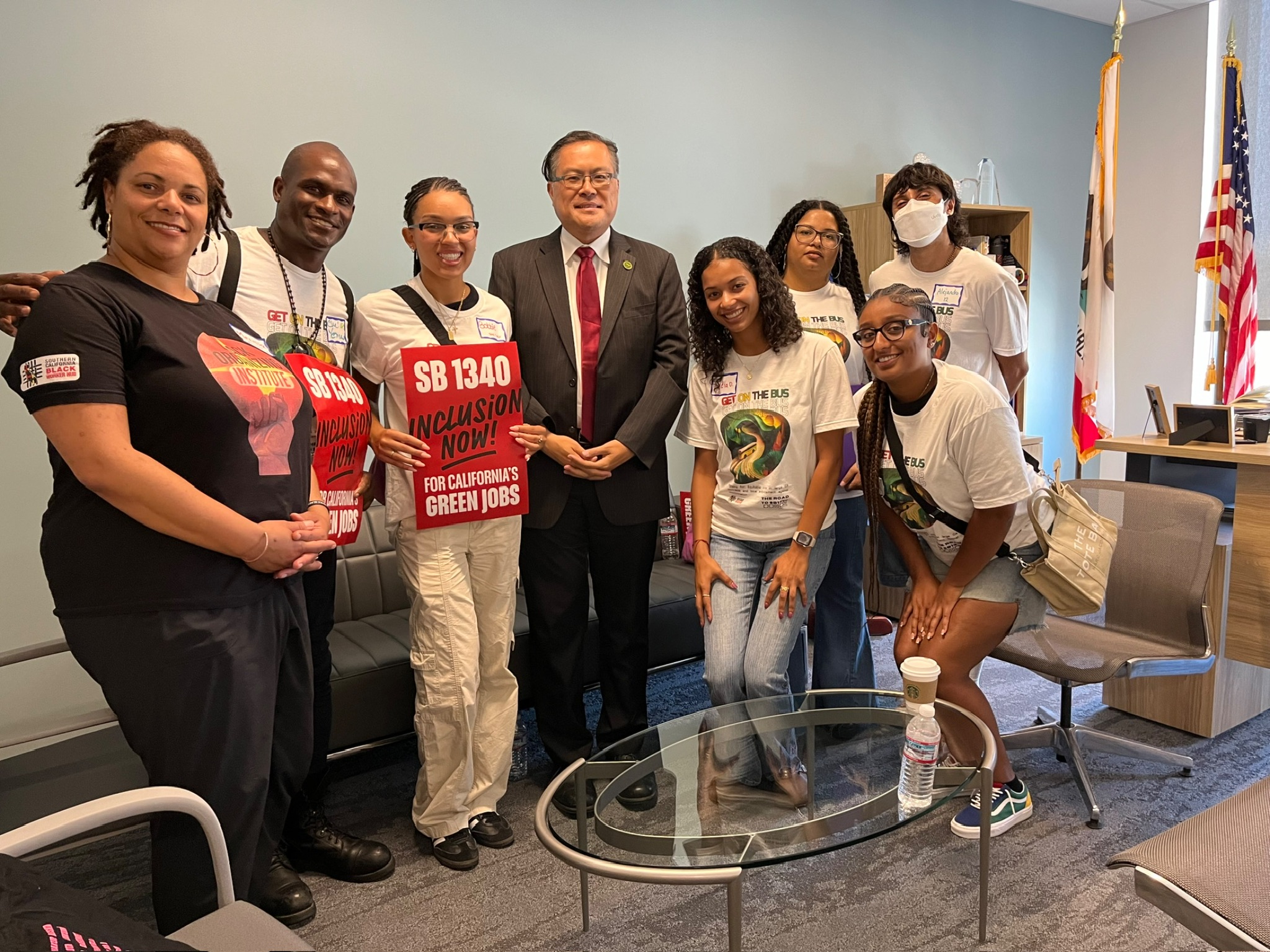
I think the most impactful part for me was when we went to Sacramento, seeing how organizing works and being on the front lines myself because I’ve never actually organized before this. Seeing what goes into speaking with elected officials in the background was also important to me but also recognizing the implications of our work being seen by assemblymembers and people having the opportunity to talk to Governor Newsom about their rights for worker protections. All of the media coverage was pretty cool too.
What did you learn while advocating for worker rights at the state capitol?
When we traveled to Sacramento with the Black Worker Centers, we were divided into several groups to be able to speak with different assemblymembers at designated times. In my group, we had two people with testimonies that wanted to share their experiences with assemblymembers and I had gotten a chance to speak with them. Hearing about the different hardships people have to go through at work was powerful as I felt that I could also relate to a few of those stories and being in a position of having to support yourself and your family. I learned about a nurse who had gotten fired because of how they looked and not what they were bringing to the job. Hearing these testimonies was really impactful for me and why we need bills that protect workers to be passed.
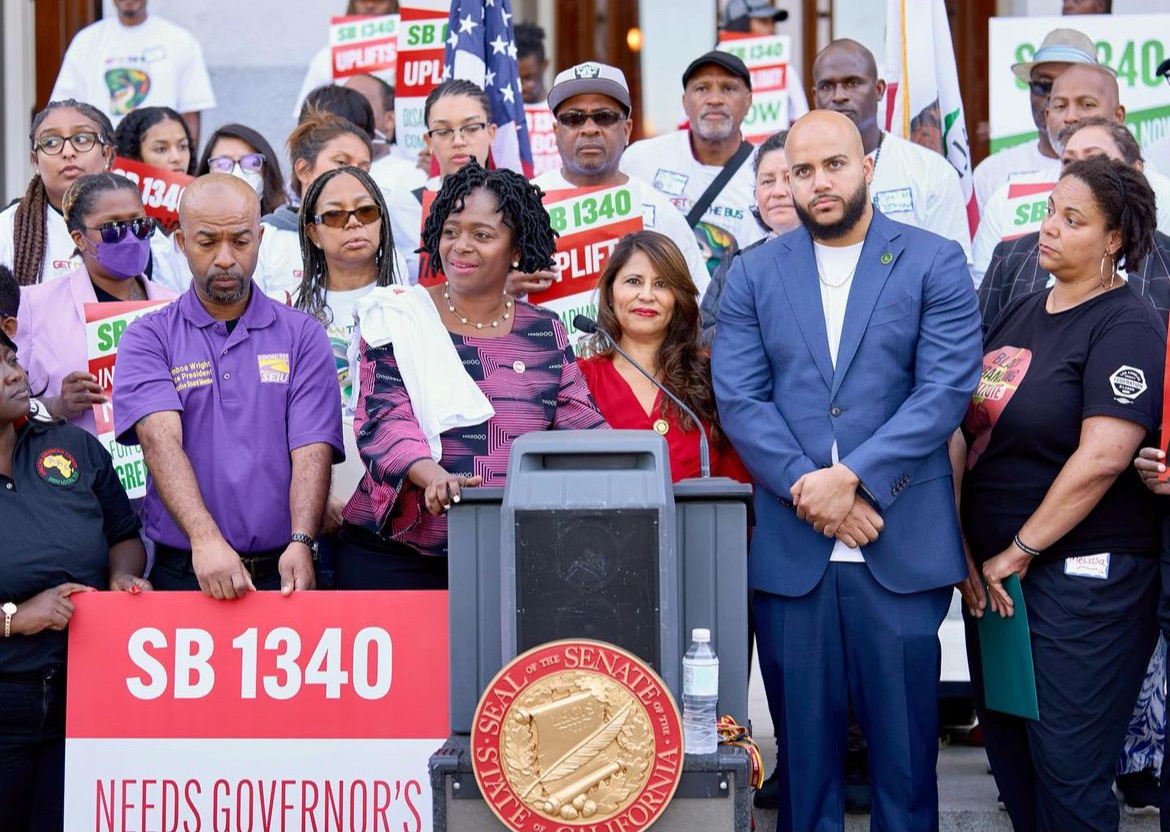
Besides hearing real workers’ testimonies and listening to their stories, I loved meeting new people and networking. I actually got to meet the assemblymember for my district and talk to them about issues I was personally interested in, such as the gap in education for our district. I was really grateful that I had that opportunity as well.
How did the fellowship help you build relationships with other fellows, mentors, or community partners?
A lot of the fellows are really like-minded. For example, Alexis Molden was another Freedom Fellow who was doing work with me at the Southern California Black Worker Hub. She was studying for the LSAT and planning to go to law school. She also lives in Washington D.C., which is where I’ll be next quarter for UCDC. Implementing what we want to do in our career with the work that we’re doing through the Freedom Fellowship was really important for not only me and her, but all for all the other fellows too. I think it’s really important being able to come back to CARE at Work to support the community, whether it’s attending events or being a speaker. This network is something that will have longevity, which is important to me as I go into my career in criminal law. There were a couple other fellows who all wanted to study different parts of law. Those connections are not only good for me, but they’re also good for the community.
How can you apply your learnings from the fellowship to your future endeavors?
I want to represent underrepresented people. This is something that I’ve wanted to do when I was younger. Since I was 8 years old, I wanted to be a lawyer and ever since then, I stuck with it. Seeing how these bills are passed and how people’s lives are being impacted by race and being disadvantaged at workplaces really motivated me to continue studying for the LSAT. It feels like this is where I need to be and what I need to be doing now. I know people out there need help and resources and not a lot of people are willing to do that. I plan on doing pro bono work too and being able to come back to the community, especially Los Angeles since I’ve lived here for four years now. I also plan on coming back to my hometown in Oakland to provide resources that I’m gaining from higher education.
